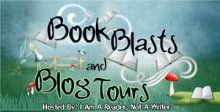I don’t know if it’s just the books I’ve been picking lately, but I’ve noticed an awful lot of non-specific settings being used. Vague State College in Moderately-Sized City, USA is a popular location as is Bigger City, USA that is a strange mishmash of New York City, Miami, San Francisco and Phoenix, sometimes with a touch, but not too much, of Chicago or Detroit. While I prefer that horror stories occur in Derry, Maine, because Derry doesn’t exist (so I tell myself) I really prefer that other books take place in a real setting, or at least a very specific setting, one I feel like I could stumble over on a long road trip through the area.
It’s not because I necessarily find specifics more exciting, it’s more that I like to believe that the book I’m reading really could be transcriptions of tapes left behind revealing a secret world that has existed under my nose (the premise of pretty much every Urban Fantasy novel ever.) Or that there really is, somewhere in our universe, a planet with magic, dragons, enchanted swords and dazzlingly beautiful women. Simply put, specific isn’t exciting on it’s own, but it makes a setting feel real, and the more real and concrete a book convinces me the story is, the more gripping I find it. It’s like a stage magician – if you can figure out the trick it’s bummer, but the minute you realize you can’t, your mind has to accept that maybe it really is happening. And doesn’t the show get more exciting then? Same with books for me.
Specific settings also help with one of my pet peeves – internal consistency. Books with vague settings tend to make mistakes. In the first chapter the character mentions that they made a quick fifteen-minute run to the grocery store, but it’s a plot point in chapter 15 that she lives 20 miles out of town. Oops. In a specific setting the mistake might still happen, but it’s unlikely. And it also helps with characterization. Once you have a specific setting you can easily say what is or is not normal for the area, which helps the reader determine who is and isn’t an outsider without the author directly explaining (spoon-feeding) those details to the reader. But there’s always caveats – some stories need the vague location to have the proper ambiance. Authors that choose a specific place but screw up basic details tend to get crucified.
I think the best question to ask is not “Should this be more specific?” but “What advantage do I gain if I leave this detail vague?” If you can’t think of one, it’s probably time to be specific. This also opens the book up to great opportunities for specifics to provide subtle clues about who isn’t who they seem. In Pocket, notice that Magister Ryan drinks tea while the rest of the crew drinks coffee. It’s the earliest foreshadowing that he isn’t who he says he is.

In an alternate universe where the twentieth century gave rise to individuals with psychic talents, the Great War ended far differently, and the flow of history led the United States into a losing war with China by the middle of the twenty-first century. The combined submarine navies of Britain, Russia, France, Canada and the United States are holding back an ever more hostile enemy that is intent on winning a war of attrition. A desperate Navy presses antiquated boats into service to supply the main fleet and mans them with the leavings of the Navy’s worst sailors. For Chief Petty Officer Lucius Tagget and his best friend Aaron Fredrickson, it’s their ticket out of naval prison and a chance to clear their names.
What should be an uneventful assignment behind the front lines turns into a nightmare when Aaron is killed in an accident that claims the lives of all the men on his submarine. Terrified of condemning another boat and crew to eternal patrol, the Navy assigns the CPNS Puget Sound a talented seer in hopes of preventing another accident. Instead, that decision changes the entire crew, and ultimately, the entire war.
What should be an uneventful assignment behind the front lines turns into a nightmare when Aaron is killed in an accident that claims the lives of all the men on his submarine. Terrified of condemning another boat and crew to eternal patrol, the Navy assigns the CPNS Puget Sound a talented seer in hopes of preventing another accident. Instead, that decision changes the entire crew, and ultimately, the entire war.
Buy Now @ Amazon
Genre - Alternative History
Rating - PG-15
More details about the author





















0 comments:
Post a Comment